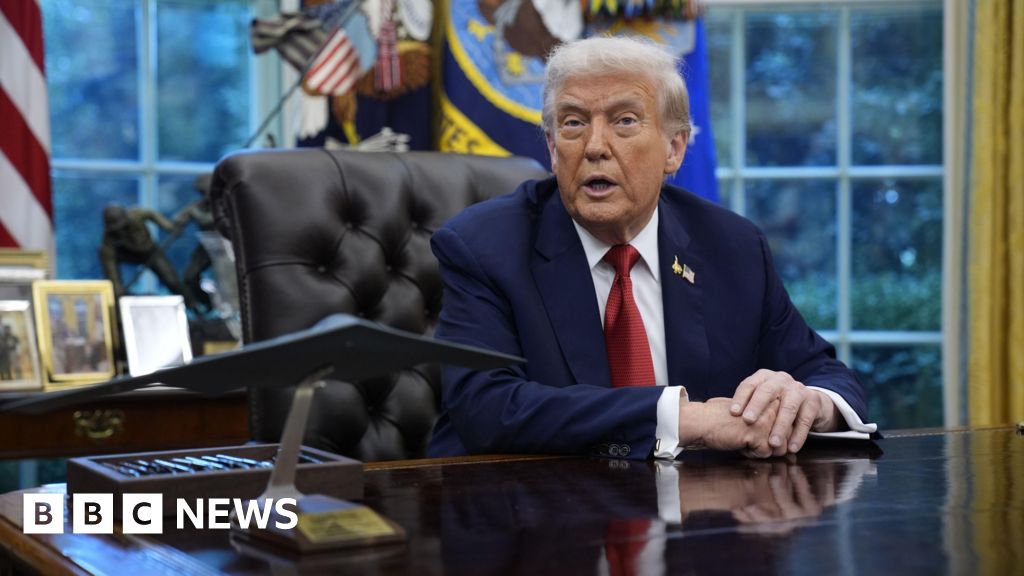Osmond ChiaBusiness reporter
President Donald Trump announced a new wave of tariffs on Thursday, including a 100% levy on imported branded drugs, unless a firm is building a manufacturing plant in the US.
Washington will also impose a 25% tariff on imports of all heavy-duty trucks and 50% levies on kitchen and bathroom cabinets, he said as he announced a slew of industry-focused duties on his Truth Social platform.
"The reason for this is the large scale "FLOODING" of these products into the United States by other outside Countries," Trump wrote, citing the need to protect American manufacturers from foreign imports.
The announcements come despite calls from US businesses for the White House to not impose further tariffs.
Trump said the tariffs on heavy trucks were to protect US manufacturers from "unfair outside competition" and that the duties would help lift American companies such as Peterbilt and Mack Trucks.
The new levies on kitchen and bathroom cabinets, as well as some other furniture, were in response to high levels of imports, which hurt local manufacturers, the president said.
He added that the US would start charging a 30% tariff on upholstered furniture from next week.
The new duties come as part of an expansion of Trump's tariff policies, which have targeted both global trading partners and specific industries.
Trump's sweeping new tariffs on more than 90 countries came into effect in early August, as part of his policies aimed at boosting jobs and manufacturing in the US, among other political goals.
Earlier this year, the US Chamber of Commerce urged the White House against introducing new tariffs, arguing that many parts used in truck production are sourced "overwhelmingly" from countries like Mexico, Canada, Germany, Finland and Japan.
The organisation added that these countries are "allies or close partners of the United States posing no threat to US national security."
Mexico and Canada are among the biggest suppliers of parts for medium and heavy-duty trucks, accounting for more than half of total US imports in the sector last year, said the chamber.
It warned that it is "impractical" to expect many of these parts to be sourced domestically, resulting in higher costs for the industry.
.png)
 2 hours ago
1
2 hours ago
1








 English (US) ·
English (US) ·